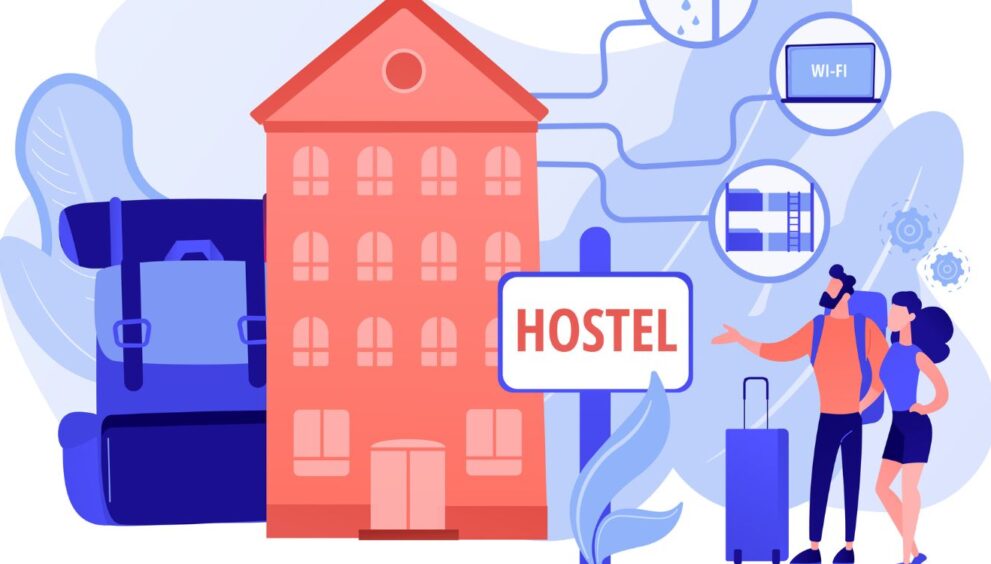Save Development Time With These 12 Airbnb Booking Components

Building a fully-functional website for listing and booking rental properties can take hundreds of hours of development time. Things like property listings, calendars, payments, messaging, and more all require building out complex functionality from scratch.
Rather than starting from nothing, developers can save enormous amounts of time by utilizing pre-built components designed for Airbnb-style sites. Dozens of components are available that handle common aspects of vacation rental booking websites out of the box.
In this article, we’ll explore 12 critical components that can be dropped into any property booking project. Each one is configurable to fit specific needs, but will handle complex backend logic so developers can focus on other aspects of their sites.
By the end, readers will understand how these pre-fabricated parts can greatly accelerate building an online booking platform while still allowing for customization. Let’s dive into each component.
Component 1: Property Listings
Displaying rental listings in an organized, filterable grid is step one for any booking site. A property listings component saves weeks of work building the frontend and backend.
Major features include:
- Grid view of photos, addresses, prices and basic info for all properties
- Filtering options to search by location, dates, number of guests, amenities and more
- responsive layout adapts grid to any device
- infinite scrolling as more listings are loaded
- backend management for hosts to upload photos and detail pages
Configurations allow control over everything from grid layout to filters. Dynamic data comes from the property database. This central component sets the foundation.
Component 2: Property Detail Page
Showcasing individual properties is crucial. A property detail page component handles 90% of the logic. It displays:
- Hero image slider and all photos
- Address, amenities, host bio and description
- Pricing breakdown and daily/weekly/monthly rates
- Calendar to check availability and book instantly
- Reviews from past guests
- Inquiry form to contact host
- Printable/shareable page for social media
Customizable designs allow unique styling. Dynamic content pulls from property and review databases. Inquiries notify hosts and can optionally be integrated to payment systems. This saves endless hours of frontend and backend work.
Component 3: Calendar
A calendar takes bookings to the next level by giving guests intuitive date selection. A robust calendar component:
- Renders monthly, weekly or daily calendar views
- Highlights unavailable dates based on live data
- Calculates prices dynamically based on selected check-in/out
- Blocks out booked dates to avoid conflicts
- conditionally shows price estimates on hover
- Saves dates on submit and validates availability
Configuration options include design, availability logic, and connected databases. Real-time checks ensure bookings don’t overlap. This eliminates most calendar development from scratch. Check Zipprr Airbnb Clone App Development.
Component 4: Guest Profiles
Allowing registered guests to maintain profiles is essential for repeat/future bookings. A guest profiles component handles:
- User registration form with email/password login
- Secure password hashing for encryption
- Profile editing form to store payment/contact info
- Bookings/reviews Dashboard for each guest
- Profile search for hosts to see guests
- Multi-property/multi-user roles
Adjustable fields allow customizing profile attributes. Profile data populates booking forms. User logins integrate across site for a seamless experience. This centralized system handles the foundational guest management.
Component 5: Checkout and Payment
Guests expect a simple, secure checkout process. A pre-built checkout component streamlines the flow with:
- Step-by-step guided form to enter booking & payment details
- Frontend form validation to catch errors
- Connects to payment gateways like Stripe, PayPal
- Generates payment tokens and confirms transactions
- Stores payment methods securely in profiles
- Sends automated booking confirmations
Configurable options include Stripe/PayPal integration, multi-step forms, conditional fields, and email notifications. This elevates the booking experience over standalone components.
Component 6: Inquiries and Messaging
Allowing initial questions is important for conversions. An inquiries component provides:
- Contact forms embedded on property pages
- Email notifications sent to hosts on new inquiries
- Inquiry dashboard for hosts to manage leads
- Optional messaging threads between guests and hosts
- Toggle for inquiries vs instant bookings
- Connects inquiries to calendars and profiles
Simple admin forms integrate across components. Hosts get a seamless centralized hub to respond in a timely manner, improving the guest experience.
Component 7: Bookings and Reservations
Once booked, rentals need careful tracking and organization. A reservations component covers:
- Store and search booking records from all sources
- Associate bookings with guest profiles and properties
- Track important dates, guests, payments and special requests
- Generate official PDF/HTML booking confirmations
- Calendar blocking to prevent overlapping bookings
- Dashboard widgets to monitor bookings and revenue
Robust back-end ensures data accuracy while providing tools for hosts and site managers. Automated confirmations improve the process.
Component 8: Reviews
Guest and host reviews help build trust on property pages. This component:
- Collects and displays review forms on profiles
- Renders reviews with ratings, text and photo uploads
- Verification to prevent fraudulent reviews
- Editor control over approved/pending reviews
- Analysis of averages and top attributes
- Social proof builds credibility across the site
Default templates are highly customizable. Frontend/backend design integrates reviews attractively throughout listings and profiles.
Component 9: Host Dashboard
Hosts need an organized admin area to monitor properties. The host dashboard provides:
- Property management forms to edit details and calendars
- Inquiry management for communication and conversions
- Live and upcoming reservation calendars
- Revenue reports, analytics and business insights
- Messaging portal to contact guests privately
- Administrative profile settings and help docs
Fine-grained permissions separate host vs admin views. Configuration allows marketplace-style interfaces. Extensive features yet optimized for mobile use.
Component 10: Guest Dashboard
Registered guests access a dashboard for bookings:
- My bookings calendar with reservations
- Profile management including payment methods
- Booking/reservation inquiries and changes
- Leave/view reviews for past stays
- Communication portal to message hosts
- FAQs, confirmation documents and resources
Profile favorites offer easy rebooking. Calendar sync ensures reservations stay up-to-date. Secure account access from any device improves direct booking.
Component 11: Maps Integration
Showcasing locations through maps elevates property exposure. A maps component:
- Plots all active listings directly on maps
- Provides address lookup and geocoding
- Faceted filtering from markers on the map
- Info windows describe individual properties
- Directions and neighborhood context
- Integration with Google, OSM and Bing maps
Customizable styles marry mapping with core components. Geodata gives properties spatial context for easier discovery.
Component 12: Email Marketing
Nurture leads with automated emails. This final component supports:
- Configurable email templates for different triggers
- Welcome series emails for new registrations
- Automated booking confirmations and receipts
- Surveys, reviews reminders, renewal emails
- Promotional and seasonal campaigns
- Analytics on open/clickthrough rates
- Unsubscribe links and consent options
Intelligent email series improve retention without labor. Analytics identify top-performing campaigns. Compliance and deliverability are handled behind the scenes.
Conclusion
By leveraging these pre-built Airbnb booking components, developers gain critical functionality without extensive backend programming. They handle complex behaviors like availabilities, payments, messaging, and multi-entity relations out of the box.
Each component is configurable, with published APIs and documentation for custom workflows. Frontend templating languages like Handlebars allow full redesigns. Server data connections abstract database integration.
For any project requiring such a backend—whether for vacation rentals, co-working spaces, or event venues—these components provide a robust starting point to streamline development significantly. Entire features that would take months are available instantly through preexisting logic and code.
Ultimately, development teams are able to focus on custom frontend experiences and business features rather than low-level application building. Go-to-market speed increases drastically while still allowing for innovation on top of proven solutions.
By leveraging pre-existing code rather than starting from scratch, new property booking sites can launch faster with far greater functionality. Components provide fully functioning backends to accelerate any booking platform project.


 English
English 


